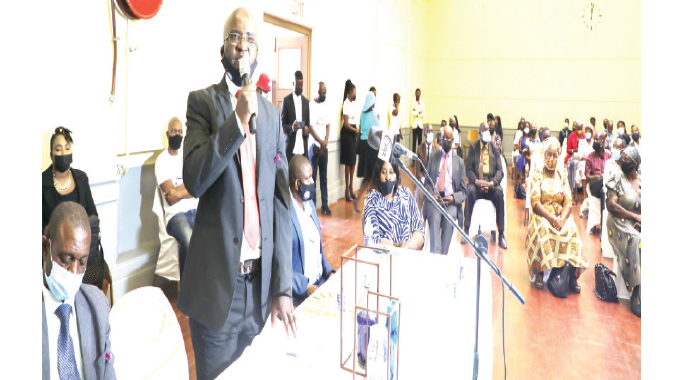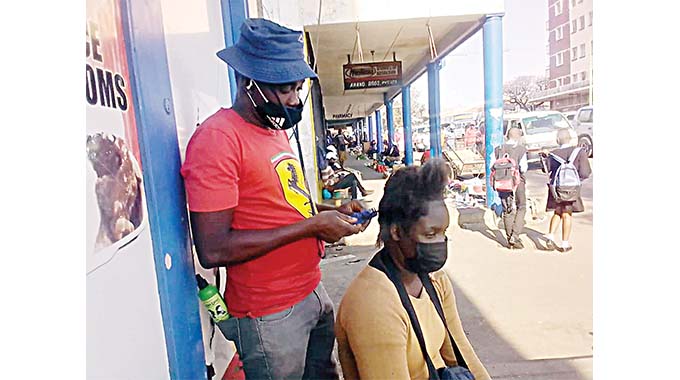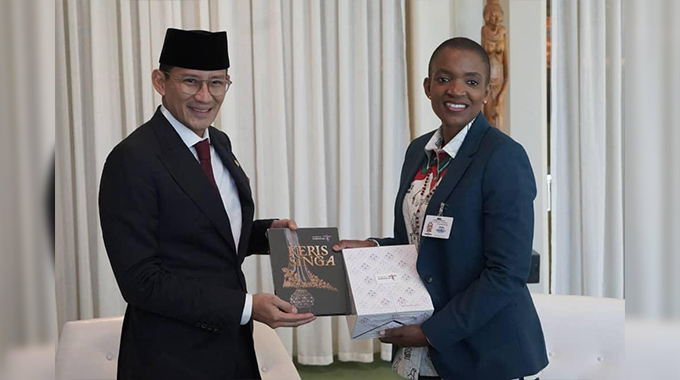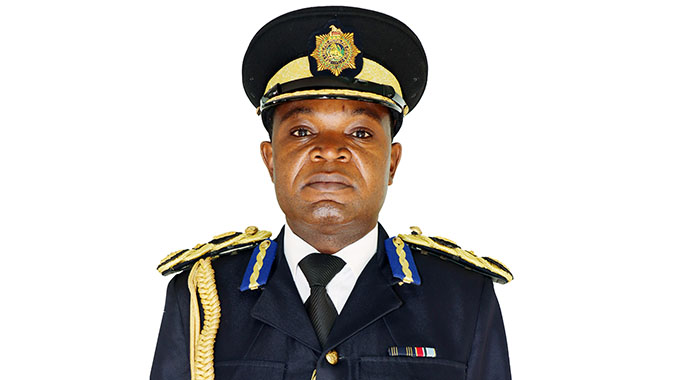WATCH: Zacc takes corruption fight to churches

Nqobile Tshili, Chronicle Reporter
THE Zimbabwe Anti-Corruption Commission (Zacc) yesterday said it was taking the corruption fight to churches as there is widespread underhand dealings that bleed the economy.
Zacc general manager Dr Munyaradzi Magiga said while nearly 90 percent of citizens claim to belong to religious institutions where morality is emphasised, the high levels of corruption suggest otherwise.
Dr Magiga was speaking in Bulawayo yesterday during an Inter-religious Association for Peace and Development Zimbabwe (IAPDZ) provincial launch.
IAPDZ consists of religious leaders who want to positively impact society through peace building and solving national challenges.
Dr Magiga said the most common form of corruption found in the public sector is conflict of interest where individuals do not declare their personal agendas in business deals.
“There is also concealment of deals. You go and buy resources out there, come up with two receipts. The first copy is written an inflated figure when you actually paid less, so that the person who buys is going to share the difference with the person with whom he bought from. You can imagine it is happening in Government, it is happening in the private sector and it is happening in the churches,” said Dr Magiga.
“Ladies and gentlemen, corruption is corruption and if you are at church and abuse church funds, those are trust funds. We are coming to investigate and make sure that you are brought before a competent court.”
He said abuse of office is also another form of corruption.
“If we are talking about Government issues, if I’m the general manager, all the vehicles, I will take them and use them at my farm yet service delivery is suffering. This is what is happening. The officers are not finding enough resources to do their work, they use buses to travel when you have got all the resources at your farm,” he said.
Dr Magiga said the religious sector cannot be ignored.
“A research was undertaken in 2012 and the results showed that between 85 and 87 percent of the people in Zimbabwe are religious. If we have got a social problem, an economic problem, whatever problem it might be, we need to engage the people under a religious umbrella,” said Dr Magiga.
He said churches should take a leading role in the empowerment and teaching citizens good morals given their influence.
“We want you to have five minutes of your church business to talk about corruption. Corruption is talked about in the bible and is a sin. A church leader cannot have a whole session of his or her service without mentioning something about corruption. Corruption is destroying this nation and we need to take it very seriously. Let us not give criminals space,” said Dr Magiga.
He said Zacc has a rapid response team whose mandate is to promptly respond to reports of corruption.
Dr Magiga said the country can attain a middle income economy status even before 2030 if it effectively addresses the problem of graft.
He said Zacc remains on the offensive and commended President Mnangagwa for supporting the anti-corruption drive.
“We will arrest them without fear or favour. We have accounted for senior Government officials who in the past we would not touch. What people should know is that Zacc will arrest anyone who commits fraud of whatever nature,” he said.
Dr Magiga said Zimbabwe is endowed with many natural resources that include minerals which need to be protected against corrupt individuals that might want to steal them for their personal gain.
He said in order to deepen the anti-corruption agenda, Zacc is in consultation with Primary and Secondary Education and Higher and Tertiary Education, Innovation, Science and Technology Development ministries to include graft in the education curriculum.
IAPDZ president Bishop Albert Chikuni said religious organisations can contribute to solving problems in the country.
He said by inviting Zacc to their engagements, they want other leaders to have an appreciation of challenges affecting the country and contribute to solving them.
He said his organisation is also involved in discussions on how to address child marriages which have become a problem in the country.
“We also have child marriage cases that are affecting the society and as a church we have the critical mass, we have the congregants that can contribute to solving the problem,” he said. — @nqotshili











Comments